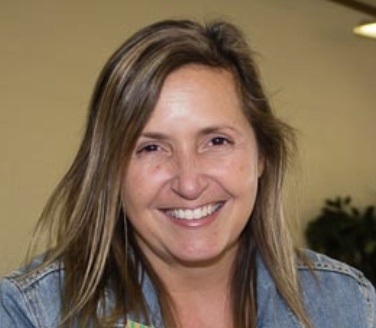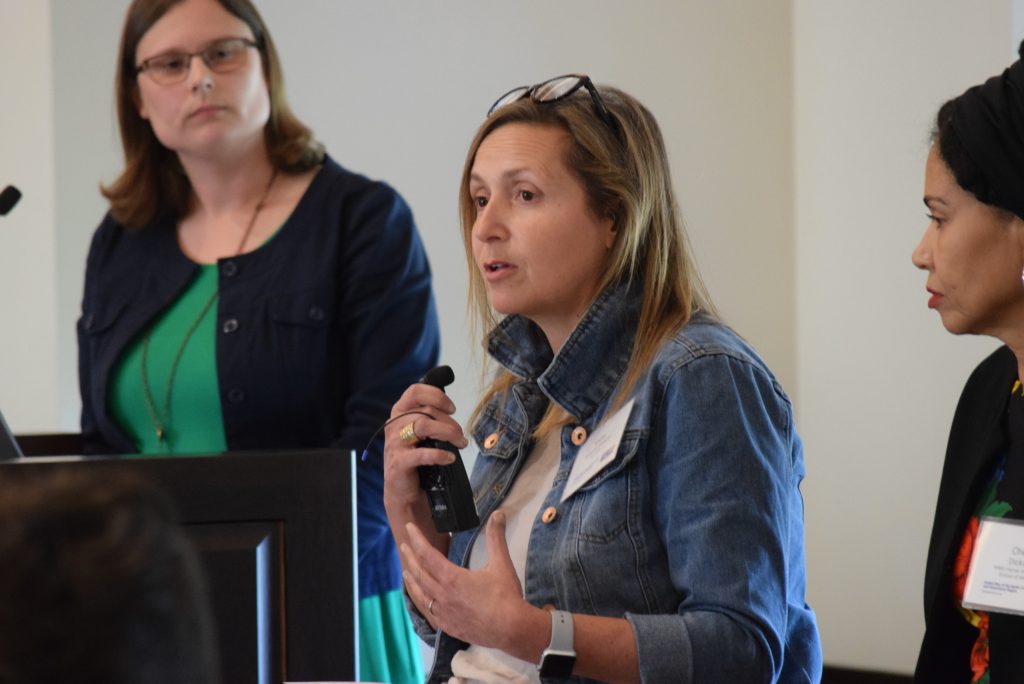Why All This Talk About Trauma?
October 3, 2019


Editor’s note: Trauma shows up as a pervasive barrier to a person’s success in every one of United Way’s Impact areas – Health, Education, Financial Stability and Basic Needs. It’s an issue we have only begun to address over the past few years with events such as film screenings of “Resilience,” community conversations and most recently, an all-day Trauma Awareness conference exploring how we can all come together to create a trauma-responsive community.
Kathy Szenda Wilson is co-Executive Director at BC Pulse and a Michigan ACE Certified Master Trainer. She took part in a panel discussion about trauma at this year’s United Way CEO Summit, and shares some thoughts in the following blog.
When we experience abuse, neglect or toxic stress as children, we learn that the world is not safe.
Our bodies and minds then adapt based on that understanding – a normal response to abnormal experiences. That response can lead to a lot of blame and shame as we personally assume responsibility for actions we often had no control over. Those same responses can also lead to behaviors that can wreak havoc on our bodies. And while some behaviors appear to be a solution in the short-term, they end up being problematic in the long run.
Want specifics? Imagine someone who has experienced a chaotic, painful childhood. They start smoking at a young age. Nicotine’s properties provide some short-term relief from anxiety and depression. Unfortunately, nicotine is also terribly addictive and causes long term, proven health problems – often leading to early death. So while this person experiences some relief from their depression and anxiety while they are smoking, the unfortunate paradox is that what starts as a solution eventually turns into its own problem.
This illustrates how early experiences can lead to poor health outcomes. We also know that the blame and shame people experience as a result can lead to social isolation – which furthers these poor outcomes.
Think it’s only other people? Think again. The ACEs (Adverse Childhood Experiences) Study of 1999 that examined the childhood experiences of more than 17,000 people in the San Diego area proved that this is an “all of us” problem. ACEs are universal. They do not discriminate based on gender, race, class or geography. The study resulted in the development of an index of 10 childhood experiences that is used as an instrument at the population level to predict risk. These experiences include physical abuse, sexual abuse, emotional abuse, physical neglect, emotional neglect, exposure to domestic violence, household substance abuse, household mental illness, parental separation or divorce, and incarcerated household member.
The body of work now referred to as NEAR (neurobiology, epigenetics, ACEs, resilience) provides us further insight and a way forward.
We can tame what we’re willing to name. Learn as much as you can about NEAR science. Reflect on how it shows up in your life. Consider where you can make changes that will improve your life and those around you. What a powerful opportunity.
Consider the things you’ve inherited from your parents – eye color, height, intelligence. And also consider that there are other things you’ve inherited, like parenting and discipline styles, attitudes toward the world, optimism, empathy. And give serious thought to what you’d like your own children to inherit. With intention, a different way is possible.
Beyond your personal life, get as curious as you can. When you have an experience with someone who is really struggling and you find challenging, ask yourself “what happened to them?” rather than “what’s wrong with them?” If you’re willing to go even further, stretch yourself to find what’s “right” with them. It’s tough and takes intention, but it’s so powerful.
We are beings wired for connection. Let’s do better at connecting with one another. You don’t have to hold a special position or have any formal training. Get out and meet your neighbors. Get to know your co-workers a little better. Be the reason someone puts a smile on their face. And do some serious reflecting on your own life. What happened to you as a child matters, and shows up in ways you least expect. There is true power and freedom that comes with acknowledgement. Share your experiences with others; feeling less alone has incredible healing powers.
So next time you hear the words “trauma” or “trauma-informed” give some thought to what I’ve shared. It’s so much deeper than what the word implies. And we don’t have to wait for anyone to shape a different future.
Visit the Michigan ACE Initiative online to learn more about ACES and what’s being done in Michigan to develop trauma informed and responsive communities.

![]()
Posted in BC/Kzoo, BC/Kzoo General
